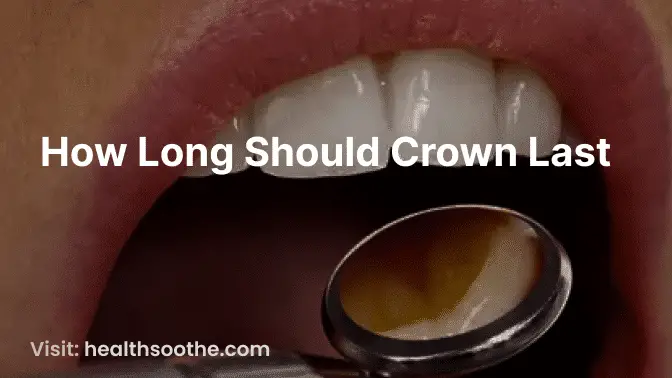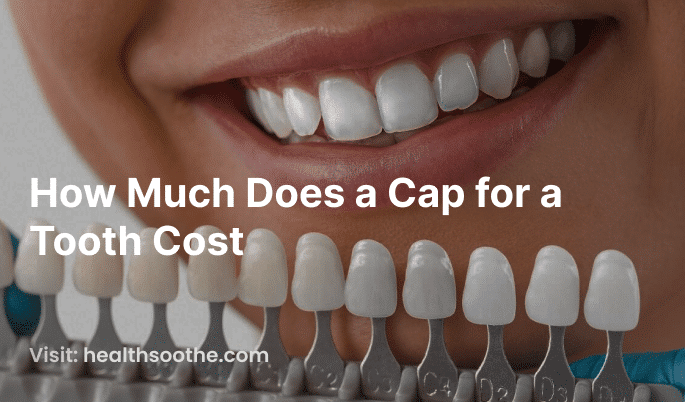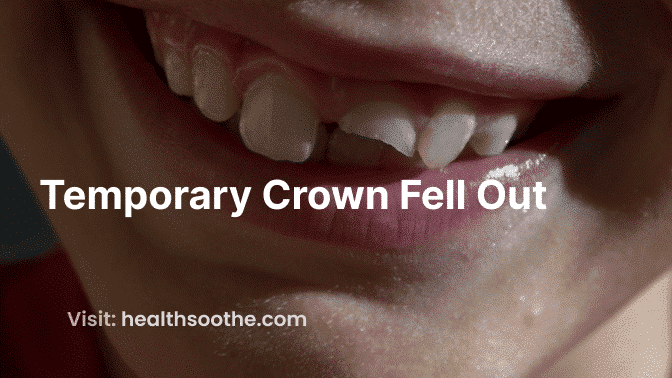Dental crowns are a vital part of restorative dentistry, providing strength, protection, and aesthetic appeal to damaged or weakened teeth. Understanding the lifespan of a dental crown is crucial for patients considering this treatment option.
In this article, we will explore the factors that influence the longevity of dental crowns and provide valuable insights into maximizing their lifespan.
Definition of Crown Lifespan
The lifespan of a dental crown refers to the duration it remains functional, maintaining its structural integrity, appearance, and functionality. While crowns are designed to be durable, their longevity can vary based on several factors.
Material Selection:
The choice of crown material plays a significant role in determining its lifespan. Different materials, such as porcelain, metal, and ceramic, offer varying degrees of durability.
Porcelain crowns, for instance, are known for their natural appearance but may be prone to chipping. On the other hand, metal or ceramic crowns tend to be more resilient but may not match the aesthetics of natural teeth as closely.
Proper Oral Hygiene
Maintaining excellent oral hygiene is paramount to prolonging the lifespan of dental crowns. Regular brushing and flossing, along with routine professional cleanings, help prevent plaque buildup and decay around the crown. By keeping the underlying tooth and surrounding gums healthy, you can contribute to the longevity of your crown.
Read Also: Dental Debridement Cost: Factors, Alternatives, and More
Bite Force and Habits
Excessive bite force and habits like teeth grinding (bruxism) can exert undue pressure on dental crowns, potentially shortening their lifespan.
It is essential to address bruxism through the use of custom mouthguards or other dental interventions to protect both natural teeth and crowns. Similarly, avoiding habits like nail-biting or using teeth as tools can help prevent damage to the crown.
Dental Crown Maintenance
Proper maintenance is key to ensuring the longevity of dental crowns. Certain precautions, such as avoiding hard or sticky foods that can place excessive stress on the crown, are recommended. Other method of maintenance include:
- Use a soft-bristle toothbrush: Opt for a soft-bristle toothbrush to avoid damaging the crown or causing gum irritation. Gently brush along the gumline and around the crown to keep it clean.
- Don't use your teeth as tools: Refrain from using your teeth to open packages, tear tape, or perform any other tasks that may put excessive pressure on the crown. Using your teeth as tools can lead to crown damage or even fractures.
- Rinse with mouthwash: Incorporate an antimicrobial mouthwash into your oral hygiene routine. Rinse with it after brushing and flossing to help reduce bacterial buildup around the crown and maintain overall oral health.
- Schedule regular dental check-ups: Visit your dentist at least twice a year for routine check-ups and professional cleanings. During these visits, your dentist can assess the condition of the crown, identify any potential issues, and provide necessary maintenance or repairs.
- Address teeth grinding (bruxism): If you have bruxism (teeth grinding or clenching), discuss it with your dentist. They may recommend wearing a custom mouthguard at night to protect your dental crown and natural teeth from excessive force.
- Avoid smoking and excessive alcohol consumption: Smoking and excessive alcohol consumption can negatively impact the health of your gums and teeth, potentially affecting the longevity of your dental crown. Quitting smoking and moderating alcohol intake can contribute to better oral health overall.
- Report any concerns to your dentist: If you notice any changes in the fit, color, or sensitivity of your dental crown, or if you experience discomfort or pain, promptly inform your dentist. Early detection and timely treatment can help prevent further complications.
By following these maintenance guide lines it will help you to maintain a good dental crown without stress.
Crown Placement and Fit
The accuracy of crown placement and the quality of fit are crucial factors in determining the lifespan of a dental crown. Skillful placement by an experienced dentist using advanced technology ensures optimal bonding and alignment.
An ill-fitting crown may lead to complications, such as recurrent decay or damage to the underlying tooth structure, which can reduce the crown's lifespan.
Longevity of Different Crown Types
The expected lifespan of dental crowns can vary based on the material used. Porcelain crowns typically last between 5 to 15 years, while metal or ceramic crowns can endure for 10 to 20 years or longer.
It is important to discuss the pros and cons of each crown material with your dentist to make an informed decision based on your specific needs and expectations.
Signs of Crown Failure
Recognizing the signs of crown failure is essential for timely intervention. Any indication of recurrent decay, chipping, sensitivity, or discoloration should be promptly addressed with your dentist. Regular dental check-ups and X-rays can help identify potential issues and ensure timely repairs or replacements.
Replacement Options
If a crown needs to be replaced, several options are available. The process typically involves removing the old crown, preparing the tooth, and fabricating a new crown.
The cost of replacement may vary based on the materials chosen and any additional treatments required. In some cases, alternative treatments like dental implants may be considered as a replacement option.
Conclusion
The lifespan of a dental crown depends on various factors, including material selection, proper oral hygiene, bite force management, maintenance, placement accuracy, and the type of crown chosen.
By following good oral care practices, addressing any underlying oral health issues, and maintaining regular dental visits, you can maximize the lifespan of your dental crown.
Consulting with a skilled dentist and discussing your expectations will help ensure a successful and long-lasting outcome for your dental crown. Remember, a well-cared-for crown can provide you with years of confident smiles and functional teeth.
FAQ 1: Q: How long should a dental crown last?
A: The lifespan of a dental crown can vary depending on several factors, including the type of crown, the material used, oral hygiene practices, and individual habits. On average, dental crowns can last between 10 to 15 years, but with proper care and maintenance, they can last even longer.
FAQ 2: Q: What can affect the longevity of a dental crown?
A: Several factors can affect the longevity of a dental crown. These include oral hygiene practices, regular dental check-ups and cleanings, the material used for the crown, the amount of force exerted on the crown during biting and chewing, and the presence of any underlying dental issues or habits such as teeth grinding or clenching.
FAQ 3: Q: Can a dental crown ever need to be replaced sooner than expected?
A: Yes, there are situations where a dental crown may need to be replaced sooner than expected. This can occur if there is recurrent decay around the tooth, damage to the crown itself, improper fit or alignment, gum disease affecting the supporting structures, or changes in the bite that put excessive stress on the crown.
FAQ 4: Q: How can I make my dental crown last longer?
A: To prolong the lifespan of your dental crown, it's important to maintain good oral hygiene practices, including regular brushing, flossing, and rinsing with antimicrobial mouthwash. Avoid biting or chewing on hard objects, wear a mouthguard if you grind or clench your teeth, and schedule regular dental check-ups to detect any issues early.
FAQ 5: Q: What should I do if my dental crown becomes loose or damaged?
A: If your dental crown becomes loose or damaged, it's important to contact your dentist as soon as possible. They will evaluate the crown and the underlying tooth to determine the appropriate course of action, which may involve re-cementing the crown, repairing it, or replacing it if necessary. Avoid attempting to fix it yourself to prevent further damage.



